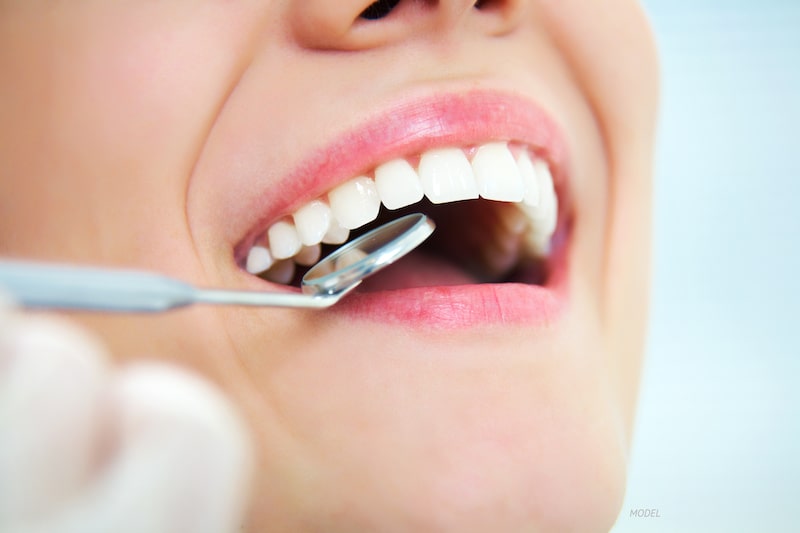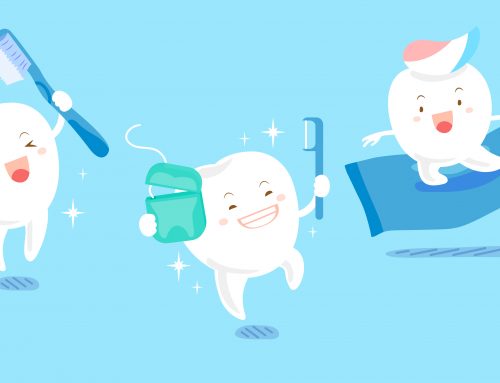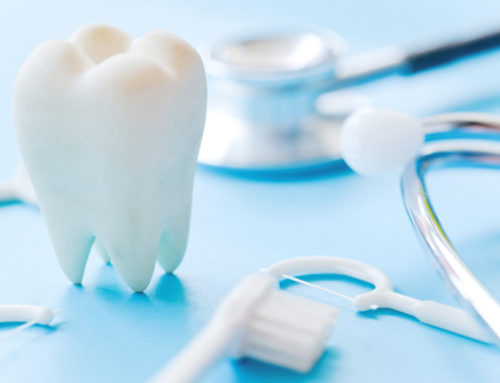3 Minute Read:
The way you take care of your teeth impacts more than just your smile. When problems arise in the mouth, they are not always guaranteed to stay there, and before long, a dental problem could turn into a more serious health concern. Learn what health conditions may start with poor dental hygiene, how to maintain good dental health, and when to see your dentist.
What Conditions Are Linked to Dental Health?
Studies suggest that gum inflammation and mouth bacteria associated with periodontitis can increase your vulnerability to certain diseases. In the case of conditions such as diabetes and HIV/AIDS, poor oral hygiene may even lower your body’s immune response.
Conditions potentially linked to oral health include:
- Endocarditis. This infection of your heart’s inner lining can come from bacteria in your mouth that spread through the bloodstream to your heart.
- Cardiovascular disease. Inflammation and infections in your mouth may be linked to clogged arteries and heart disease.
- Pregnancy and birth complications. Periodontitis may lead to low birth weight and premature birth.
- Pneumonia. Bacteria in your mouth can travel to the lungs and cause pneumonia and other diseases.
Good oral hygiene is essential for everyone, especially those with certain medical conditions. For example, diabetes lowers your ability to fight infections, including gum disease. HIV/AIDS causes painful mouth lesions, while osteoporosis causes progressive bone loss in your mouth, which can lead to tooth loss and additional dental issues.
Other conditions that influence oral health include Alzheimer’s disease, rheumatoid arthritis, and certain cancers.
If you or someone you love has any of these conditions, ask your dentist how you can step up your dental hygiene to reduce potential complications.
When Should You See Your Dentist?
Bi-annual dental appointments are necessary for everyone to monitor and maintain oral health. These appointments should include a general exam and cleaning that will eradicate bacteria and plaque that evades regular brushing and flossing.
Going beyond your regularly scheduled appointments, you should see your dentist immediately if you notice any of the following signs:
- Bleeding gums while flossing or brushing
- Swollen or tender gums
- Gums that pull away from the teeth
- Chronic bad breath
- Pus between the gums and teeth
- Loose teeth
How Can You Protect Your Oral Health?
According to the American Dental Association, you can protect your oral health with consistent daily habits such as brushing and flossing your teeth twice a day using fluoride toothpaste. Using mouthwash helps remove food particles after flossing, and eating the right foods can limit the sugar in your mouth that bacteria feed on.
Replace your toothbrush if the bristles become worn (or after three months), and avoid tobacco to help prevent tooth staining and certain forms of mouth cancer.
Finally, don’t put off your dental appointments. They are necessary for a healthy mouth and a healthy body.
Interested in Learning More?
At Gum Dental Family and Cosmetic Dentistry, we understand the importance of gum care and health. Find out more about our dental exams and cleanings by calling (610) 746-0488 or by filling out our online contact form.







